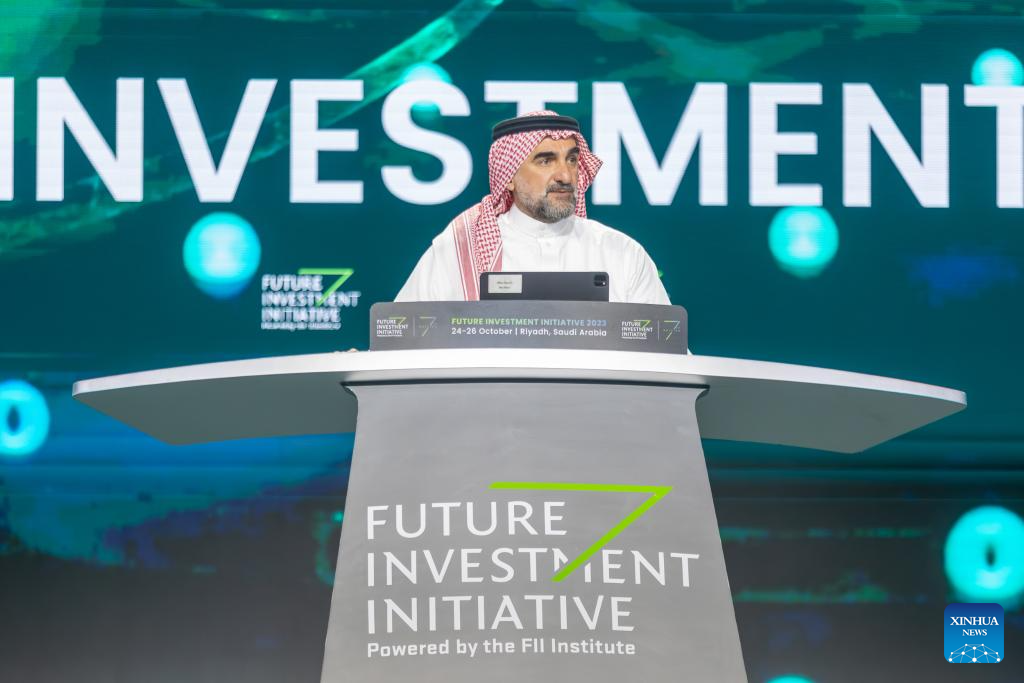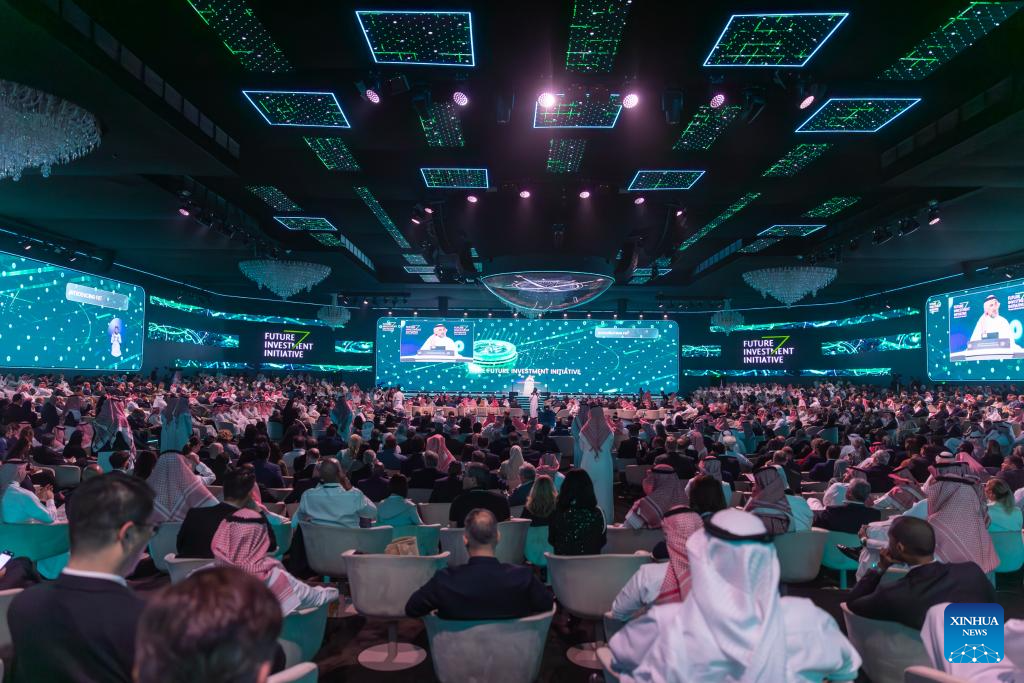As the world is watching a full-scale destabilization of the MENA region to happen, as the Israeli ground offensive to remove Hamas from Gaza has started, the last week financial giants and corporates have been flocking the hotels of Saudi Arabia’s capital Riyadh, all participating in the 7th edition of the Future Investment Initiative 2023 (FII2023), the so-called ‘Davos in the Desert’ investment conference set up by the Saudi sovereign wealth fund PIF, with the support of Saudi Crown Prince Mohammed bin Salman. The attractiveness of the Kingdom’s ongoing economic diversification and its multi-trillion US dollars opportunities linked to Giga Projects, major logistics and maritime developments and mining, is clearly superseding the fear of a regional war or a full-scale involvement of the USA and Iran.

Most American, European and Asian financial giants, such as JPMorgan, CitiGroup and others, are present, discussing of course the risks of the Israel-Hamas war, but seemingly still convinced that economics will prevail in future. The potential fall-out of a regional war, not only for regional countries, but also for the global economy and maritime trade are clear. Warnings made by the Biden Administration that potential security risks could increase, especially if Arab and Iranian militias or extremists will be taking to the streets, seem not to have convinced CEOs and others to cut their presence in Riyadh. With a total audience of over 6000 participants, coming from more than 90 countries, the success story of FII continues, as also was shown shortly after the Khashoggi murder in the Saudi consulate in Istanbul, Turkey. Participants include Blackrock’s (BLK) Larry Fink, Goldman Sachs (GS) CEO David Solomon, HSBC (HSBC) CEO Noel Quinn, billionaire hedge fund founder Ray Dalio and private equity executives Stephen Schwarzman and Harvey Schwartz of Blackstone (BX) and Carlyle (CG) respectively.
The mood has been optimistic, but realism was also shown in the panels, all participants are keeping an eye on Israel and the whole region at present. The humanitarian impact was mentioned, but mainstream views have been focusing on the impact of the crisis, with an emphasis on a gloomy assessment of the global economy. The outcome of the Israel-Hamas war is clear, if no third party involvement will happen. Still, the threat of regional instability, mainly due to internal opposition in Egypt, Jordan, Bahrain or maybe even Saudi Arabia, economic growth of the region could be hampered or outright under threat. With the MENA region currently one of the main growth areas still available, lower GDP growth, combined with higher interest rates, potentially higher energy prices and possible constraints to global trade (as MENA is central to maritime trade between Europe and Asia), a negative outlook is looming on the horizon. As CitiGroup’s Fraser stated “we are sitting here with a backdrop of the aftermath of… the terrorist attack in Israel and the events that have been unfolding since and it’s desperately sad. So it’s hard not to be a little pessimistic given that”. Fink indicated that the combination of two major regional wars, Ukraine and Israel, will increase fear of instability and less optimism about GDP growth or investments.

The most important issue however to be focused on as an outcome of FII2023 is the position currently taken by Saudi Arabia or its Crown Prince Mohammed bin Salman, the de-facto ruler of the Kingdom. As MBS not only heads the Saudi SWF PIF, but also holds all the cards in the economy, military and the Kingdom’s foreign policy, statements of him on the Israel-Hamas crisis are pivotal to understand the current position taken and the vast changes already in place in the region. Before the rise of MBS, Saudi’s normal position on the Israel-Palestine conflict was a clear cut push for a Palestinian state, while denouncing any legal rights for the existence of Israel, not even within the 1947-48 UN designated borders. Since the emergence of a new power to be, MBS has been calling the shots and moved into a totally different direction. Last month MBS even stated to the press that a possible peace deal between Saudi Arabia and Israel would be “the biggest historical deal since the Cold War”.
Without even openly calling for direct discussions, it is know that MBS’s advisors are in close contact with Israelis to set up such a deal, which would change the Middle East on its fundamentals. Some analysts have been stating that the Hamas massacre of Israeli civilians on October 7 was primarily a move to shut down any discussions between Israel and Saudi Arabia. Hamas strategy was to break down a possible peace deal, while forcing Saudi Arabia, UAE and others, to choose the side of the Palestinians. The latter didn’t happen, and was also not being discussed at FII2023. The last days MBS only has urged “all possible efforts to prevent the expansion of violence that will affect the stability of the region,” and stressed the “importance of working to create conditions for the return of stability and the restoration of the path of peace to ensure that the Palestinian people obtain their legitimate rights”. These statements are a diplomatic breakthrough of unknown order, as it is much more flexible for interpretation than former Saudi leaders have been doing. Keep in mind Saudi Arabia has been the main factor behind the 1973 Oil Boycott, but also a main supporter of possible peace deals of Arab countries and even forcing Palestinian leaders to sign a deal with Israel before.
